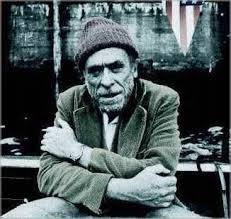Sandy Fussell's Blog, page 10
July 7, 2015
Instagram and the #Wintercomfortbookchallenge
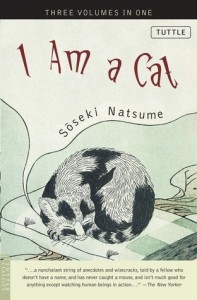 Instagram has been on my To Do List for over a year.
Instagram has been on my To Do List for over a year.
There’s so much social media and so little time. I kept stoically ignoring the beautiful pictures appearing in my Facebook feed. After all, I reasoned, I’m useless with a camera. But when I heard about the #wintercomfortbookchallenge via most excellent book people Susan at ReadUpsideDown and Megan at ChildrensBookDaily, I knew I couldn’t resist.
Unlike, other social media, Instagram wasn’t intuitive for me. I had to Google simple tasks like how to rotate a photo and I still managed to mess it up, posting before I finished editing the picture. Big learning curve. I’ve got it happening now, although I had to do a few retro posts as I missed the starting gun with my Instagram-challenged brain cells.
I’m looking forward to 16th July when the theme is Book and Pet. My Burmese Cat, Tega, has been modelling a few poses and checking out the surprising number of fiction books I have with “cat” or some other type of feline in the title, to see which one he wants his picture taken with.
There’s The Cat in the Hat, The Princess and the Panther, How to Tell if Your Cat is Plotting to Kill You, White Tiger, The Tiger’s Tale and my own Jaguar Warrior and Shaolin Tiger.
So far the front runner is I am a Cat, a wonderful translation of the Japanese classic by Soseki Natsume. It’s a wonderful cover too. I think this is the one Tega has chosen. He sat on it a number of times!
June 28, 2015
How to give writing group feedback

I’m a huge fan of writing groups.
I’ve always found being a member of one both motivating and helpful. In the course of my writing life I’ve belonged to many critique groups both face-to-face and on-line. Here are my thoughts on how to provide effective writing groups feedback:
Put personal preferences aside. It may not be your genre or preferred point of view, but neither of these factors should influence your comments.
Focus on the task at hand. It’s all about the words, the characters, the story development. What isn’t working? What doesn’t flow? What seems to be missing?
Always begin with a positive comment. There is always something positive you can say, even if the writing isn’t very polished. Perhaps you liked the idea or something about the main character? Or a phrase in a description?
Remember you are there to critique the writing not the writer. Wherever possible, avoid saying “you” when giving constructive criticism.
Preface your comments as your opinion. After all, that’s what it is no matter how experienced a writer you are.
Provide kind and constructive criticism. Make specific comments and provide suggestions to help.
Encourage discussion and provide positive reinforcement Brainstorm alternatives and solutions while encouraging the writer to make suggestions.
Maintain balanced feedback. No-one can learn everything in one go and we all had to start somewhere.
Show that you care. Remember it’s about constructive criticism and support. Be aware of the effect of your feedback. Sometimes a poorly written piece has had many revisions and it is difficult to face that it still requires substantial work.
For a more light-hearted look at offering feedback, check out this post by Lee Kofman at Writers Victoria
June 24, 2015
Be-bop-a-Luluing a Book Launch
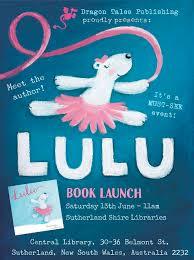 Recently I headed to Sutherland Library for the launch of Georgie Donaghey’s gorgeous debut picture book, Lulu.
Recently I headed to Sutherland Library for the launch of Georgie Donaghey’s gorgeous debut picture book, Lulu.
A crowd of young people nabbed the front row seats eager to hear the story and get close to the author who was wearing a very cool polar bear beanie.
A number of authors were there to support Georgie and help eat the delicious cakes and hang out for a photo opportunity – a very suspicious looking bunch – Deb Abela, Georgie, Susanne Gervay, Bill Condon, Di Bates, Wai Chim, Debra Tidball, moi and Emma Cameron.
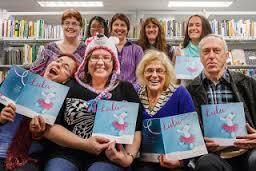
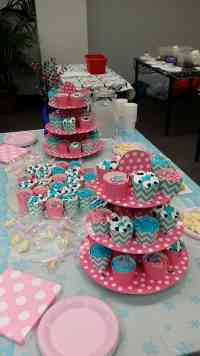
It was a valuable opportunity for me to learn a few inside tips as I have a picture book being released in October. I made a few surreptitious mental notes about:
1 Be organised. Very organised
2 Ask friends to help – with seating, serving food and craft with children
3 Have an enthusiastic and supportive launcher (Georgie had Susanne Gervay!)
4 Have lots of handouts for people to take away and remember – goodie bags for kids, cards for adults
5 Get the media involved
6 Get the library involved
7 Have fun – we certainly did that!
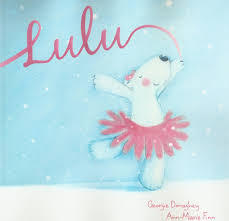
If you want to know the details of how to organise a killer book launch join me here again tomorrow when I’ll be asking Georgie exactly that.
June 11, 2015
#LoveOzYA Retroreading
“Compare the book you have been reading…”
First question on #2 son’s Distance Education English Unit for last week. What book? Scrabbled back through the year’s notes. No mention of a book. Urgent phone call. It was supposed to arrive four months ago in time for it to be read but oh no! it hasn’t been sent.
“Choose any book with a teen in it,” said his teacher. “There’s another book to be read for later this term. I’ll put that one in the post.”
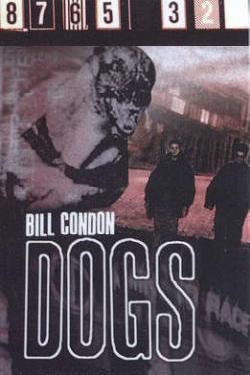 Finding a book was the easy part. I just happen to have a massive collection of wonderful Australian YA. No trip to the library required. The problem is #2 son is not a reader. Yes, sad but true, my son doesn’t like to read. So it was going to be a long haul to read the book and then catch up the work.
Finding a book was the easy part. I just happen to have a massive collection of wonderful Australian YA. No trip to the library required. The problem is #2 son is not a reader. Yes, sad but true, my son doesn’t like to read. So it was going to be a long haul to read the book and then catch up the work.
I made some choices and presented him with a selection. He picked out Bill Condon’s Dogs. Was it because it has a great cover? No. Was it the nice shiny CBCA Older Readers Honour Book sticker on the front of my copy? No. Was it the fact that our town is one of the settings? Or even that he’s met Bill and played a game of pool with him? No.No.
Dogs was the slimmest of all the books. Guaranteed to involve the smallest amount of reading. *sigh* At least we would be able to get to the work quicker.
So the struggle began. 5 pages a night. Then a few more. Then came the night where we argued about whether it was time to turn off the light and go to sleep. And the night where he got up at 2am to keep reading.
On the night when the book was fully read, a big discussion about the end followed. It had him a bit puzzled because it wasn’t what he was expecting. This was, after all, his first real book and he had encountered “the twist.”
Finally, the return of the night with no book. I said nothing and held my breath as he got into bed. “I feel like reading,” he said. “Where’s that other book I’m supposed to read? The one that came in the mail.”
Tomorrow, When the War Began. Apparently it’s not as good as Dogs but he’ll read it anyway!
June 1, 2015
Are You a Morning or a Night Person?
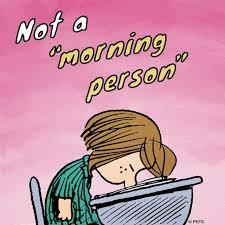 I’m a night person. Unless 2am in the morning makes me a morning person.
I’m a night person. Unless 2am in the morning makes me a morning person.
I’ll choose the hoot of an owl and the howl of a wolf over morning birds twittering, any day.
I’m not a sleep-until-noon person either. I’m up by 8am. I’ve never needed the recommended 7 – 9 hours.
According to research published in the journal, Frontiers Of Neurology, it’s all in our genes. The preference for morning or evening is known as a chronotype (just love those scientific type words – phenotype, genotype, somatotype… – they roll off the tongue like musical notes).
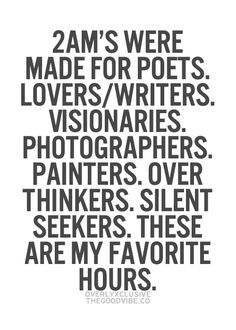
Studies were carried out on fruit flies but because the genetics of insects and humans are similar, it is expected these findings can be extended to humans.
The researchers are trying to find targets for treatments to overcome particular chronotypes.
No thank you. I’m happy to be a night owl. I don’t want to be normalised.
For more information about Early Birds vs Night Owls check out the You Tube video below.
Are You a Morning or Night Person?
 I’m a night person. Unless 2am in the morning makes me a morning person.
I’m a night person. Unless 2am in the morning makes me a morning person.
I’ll choose the hoot of an owl and the howl of a wolf over morning birds twittering, any day.
I’m not a sleep-until-noon person either. I’m up by 8am. I’ve never needed the recommended 7 – 9 hours.
According to research published in the journal, Frontiers Of Neurology, it’s all in our genes. The preference for morning or evening is known as a chronotype (just love those scientific type words – phenotype, genotype, somatotype… – they roll off the tongue like musical notes).

Studies were carried out on fruit flies but because the genetics of insects and humans are similar, it is expected these findings can be extended to humans.
The researchers are trying to find targets for treatments to overcome particular chronotypes.
No thank you. I’m happy to be a night owl. I don’t want to be normalised.
For more information about Early Birds vs Night Owls check out the You Tube video below.
May 26, 2015
Why Adults Read YA: I review The First Third
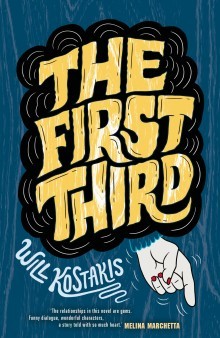 I read a lot of posts about adults who read YA. I don’t understand what the fuss is about. I read YA, and Oz YA in particular, for the same reason I read any other book. Great storytelling, empathic characters and wonderful wordsmanship. #LoveOzYA
I read a lot of posts about adults who read YA. I don’t understand what the fuss is about. I read YA, and Oz YA in particular, for the same reason I read any other book. Great storytelling, empathic characters and wonderful wordsmanship. #LoveOzYA
This review is my defence. My latest “keep me up all night” and “make me think about it all the next day” YA read – The First Third by Will Kostakis.
Some books sit on my reading horizon for an inordinately long time. And so it was with The First Third. I’m not sure why. I knew it would be an excellent read, CBCA Older Readers shortlisted in 2014 and well recommended by my reading friends.
One page in and I regretted not reading it sooner. This is a story that truly belongs to its characters. Not just the protagonist Billy, but Sticks (his best mate) Yiayia (his grandmother), Kate (his mum), Hayley (the girl he meets at the hospital) and his brothers Peter and Simon.
Yiayia Filyo is an indomitable force in Billy’s life. Her presence holds the family and the story together. While some people face possible death by putting their affairs in order, Yiayia puts her family in order from her hospital bed, providing Billy with a list of tasks to complete on her behalf.
Sometimes the solution she has in mind isn’t quite right and Billy has to improvise. He also adds a task of his own. Sticks has cerebral palsy and reluctantly ended a developing relationship before his partner could find out. But first, Mum needs a husband and there are many humorous moments as Billy and Sticks try to make that happen.
Billy’s brothers are an even more difficult task. Simon is contentedly happy but far away and Peter is so sullen and inaccessible it makes no difference that he lives in the same house. Billy cannot change their lives, not even for Yiayia, but sometimes change finds a different way through and the ultimately life-changing event for them all, brings the family together.
With Hayley and her young son, Billy finds a new appreciation for the value of family. One Yiayia knew he had all along, when she entrusted him with her bucket list, giving it first to Hayley to pass on to Billy.
Through skilful characterisation, themes of culture and identity and of family and friendship are explored.
I loved this book. It’s a testament to why older adults like myself read Young Adult fiction. We never grow out of the need for stories like The First Third.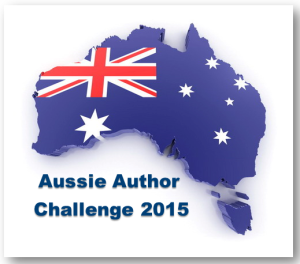
There is laughter and love, humour and wit in these pages. If you haven’t read it, don’t wait like I did.
This review also appeared on the Reading Stack and is part of my Aussie Author Challenge 2015 reading.
May 17, 2015
Best Second Hand Bookstores Ever
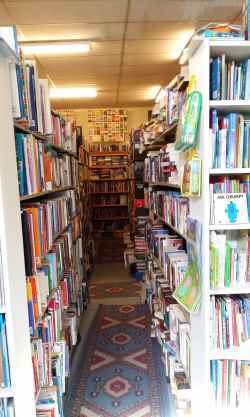 I was in Canberra last week.
I was in Canberra last week.
I only had a small window of free time, when #2 son was finally well enough to attend some distance education mini-school sessions at Karabah High in Queanbeyan.
So what to do? Bookstores of course. Whichever were closest.
Two of the best second hand bookstores I’ve ever been in were just down the road in Fyshwick, within a few hundred metres of each other. Canty’s Bookstore and Barry’s Bookstore. Bursting at the seams, shelves double stacked, no room at the cashier counter – reader’s heaven.
Hours. That’s how long it took to browse only parts of these stores. I didn’t have time to stay longer.
There are four mini-schools a year so I know where I’ll be going. Four times a year.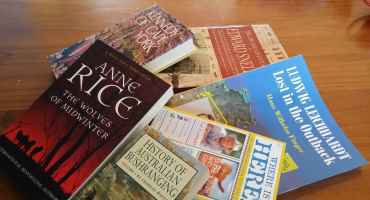
I won’t be so overwhelmed in future and will definitely come away with a bigger pile but I’m very happy with these for now.
Spot the odd one out!
May 9, 2015
Ask Charles why I write
When I read this, I sat there for a while. And then I said, softly to myself, “Oh”. In future, whenever I am asked why I write, I am going to quote these words by Charles Bukowski:
if it doesn’t come bursting out of you
in spite of everything,
don’t do it.
unless it comes unasked out of your
heart and your mind and your mouth
and your gut,
don’t do it.
if you have to sit for hours
staring at your computer screen
or hunched over your
typewriter
searching for words,
don’t do it.
if you’re doing it for money or
fame,
don’t do it.
if you’re doing it because you want
women in your bed,
don’t do it.
if you have to sit there and
rewrite it again and again,
don’t do it.
if it’s hard work just thinking about doing it,
don’t do it.
if you’re trying to write like somebody
else,
forget about it.
if you have to wait for it to roar out of
you,
then wait patiently.
if it never does roar out of you,
do something else.
if you first have to read it to your wife
or your girlfriend or your boyfriend
or your parents or to anybody at all,
you’re not ready.
don’t be like so many writers,
don’t be like so many thousands of
people who call themselves writers,
don’t be dull and boring and
pretentious, don’t be consumed with self-
love.
the libraries of the world have
yawned themselves to
sleep
over your kind.
don’t add to that.
don’t do it.
unless it comes out of
your soul like a rocket,
unless being still would
drive you to madness or
suicide or murder,
don’t do it.
unless the sun inside you is
burning your gut,
don’t do it.
when it is truly time,
and if you have been chosen,
it will do it by
itself and it will keep on doing it
until you die or it dies in you.
there is no other way.
and there never was.
May 7, 2015
Twitter Bookclub #thePauseBC
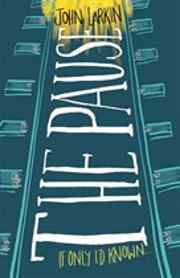 This morning I participated in a Twitter Book Club, led by Penguin Teachers, where we discussed The Pause by John Larkin.
This morning I participated in a Twitter Book Club, led by Penguin Teachers, where we discussed The Pause by John Larkin.
It was tricky at first because I’m a perfectionist and a rotten typist – so I need to type slow – and I’m used to thinking exactly what I want to say first – and then editing that. Couple this to the 140 character limit and I was severely Twitter-book-club challenged.
Everything I wanted to say required more than 140 characters.
But once I got the hang of it, the fingers started to keep up with my brain.
It was obvious everyone had thoroughly enjoyed the book. To summarise briefly: The Pause is the story of Declan (who is in Year 11) and reaches a point where he feels life is too difficult to go on. Before he jumps (and this is the very beginning so not a spoiler), he pauses. The narrative then explores the two options and I can’t tell you any more.
Surprisingly, much of the discussion centred around the parent characters, and opinions, at times were polarised. I think this is a testament to the strength of Larkin’s character building and certainly doesn’t diminish Declan’s presence. It is his story and his perspective we look through, even though as readers we might challenge it.
So here’s hoping there’s another book, another day.You can check out the discussion here on Storify.

